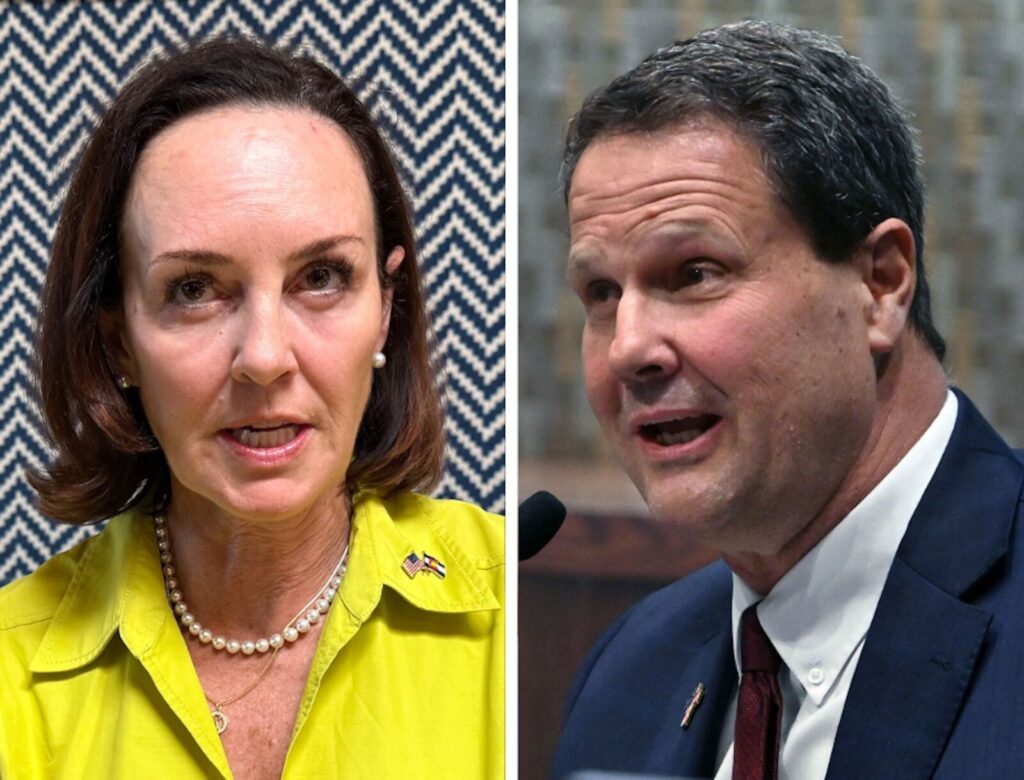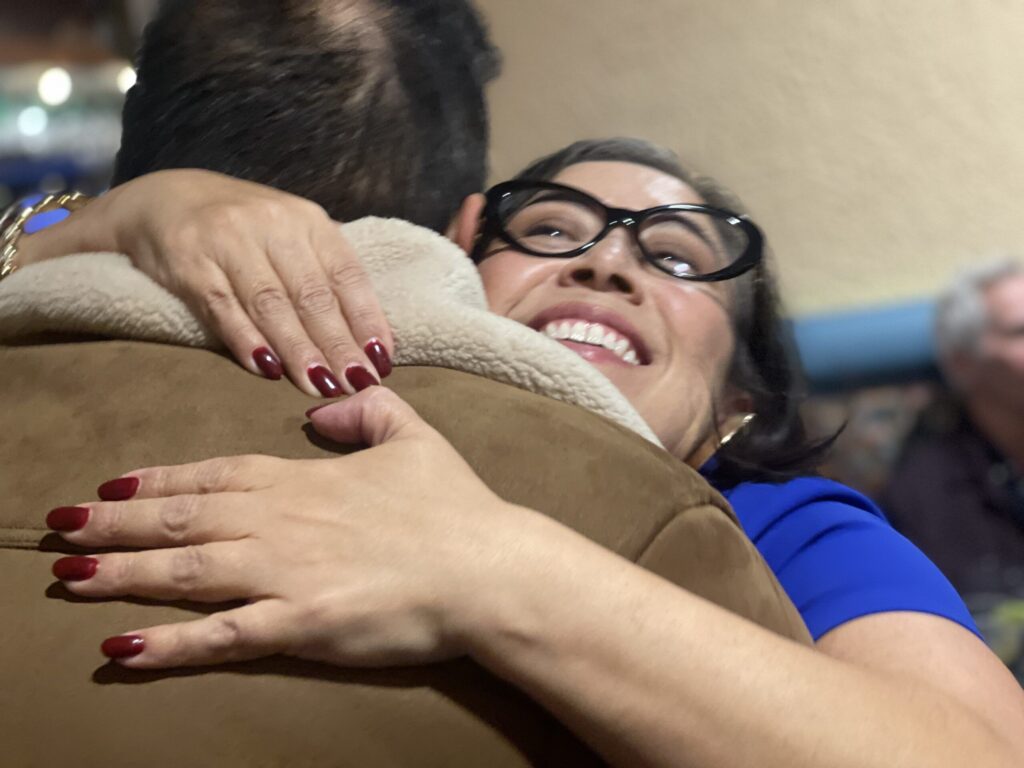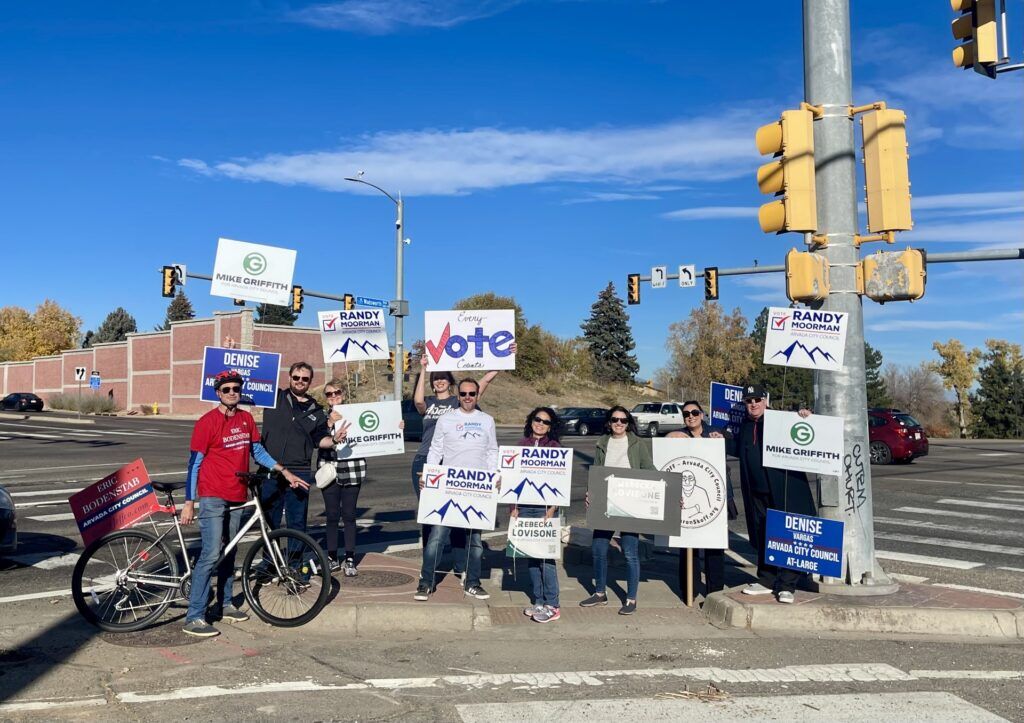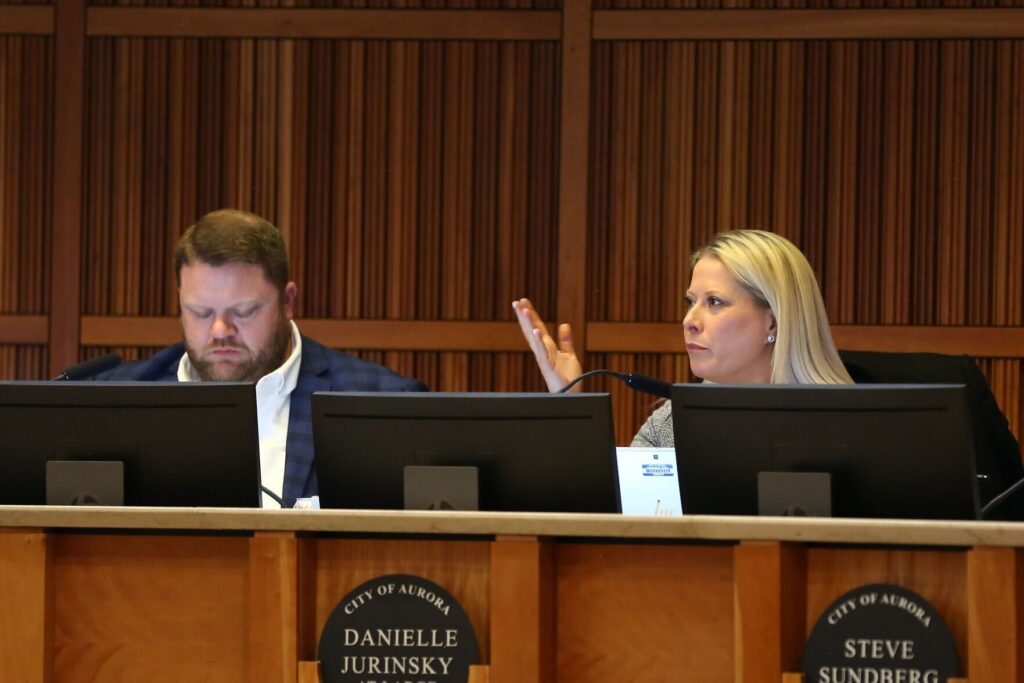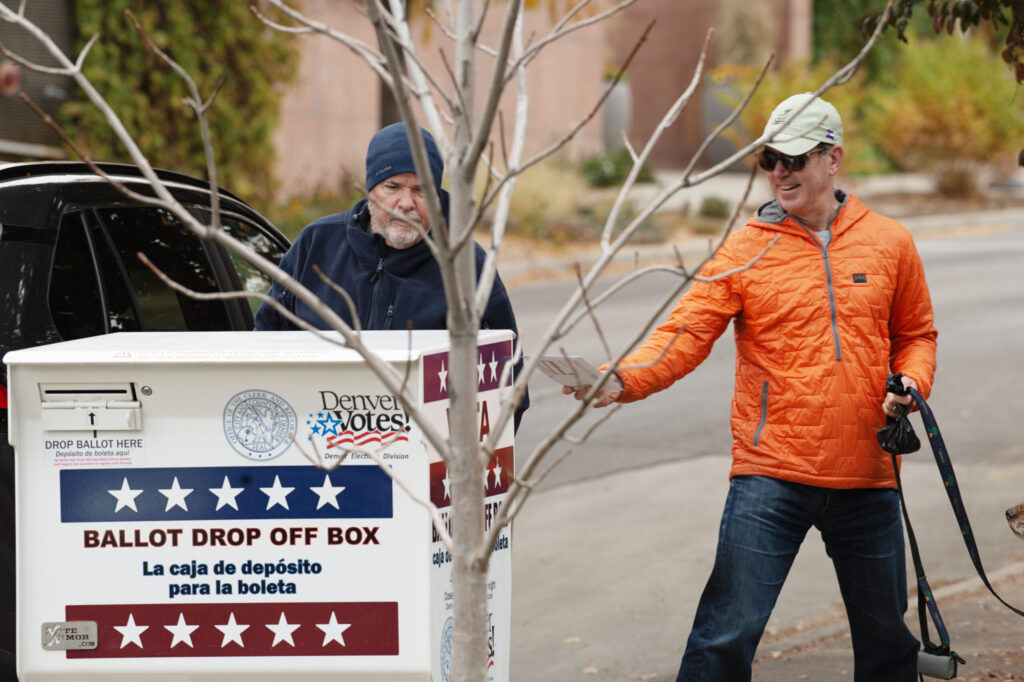Colorado House committee OKs election integrity bill after dueling testimonies from Peters, Griswold

A state House committee on Monday approved legislation to tighten security controls around elections and in county clerks’ offices following dueling testimonies from Colorado’s leading candidates for secretary of state.
The House State, Civic, Veterans and Military Affairs Committee approved, on a party-line vote, Senate Bill 153, which sponsors say is a response to alleged security breaches in Mesa and Elbert counties, where county clerks allegedly made unauthorized copies of computer data. Mesa County Clerk and Recorder Tina Peters, who has been indicated by a grand jury for her role in that alleged security breach, denies all allegations.
Peters, who testified in Monday’s hearing, called the bill a power grab and an effort to keep her from running for secretary of state.
Secretary of State Jena Griswold, who is seeking reelection, told the panel the measure is needed to fortify Colorado’s elections against those with “inside access” to harm them.
SB 153 increases basic security measures, such as requiring 24/7 surveillance and key card access to rooms where election equipment is stored. In any county of more than 100,000, the bill would prohibit any elected official or candidate from having key card access to a room with voting equipment or devices without being accompanied by someone else with authorized access. For smaller counties, the bill sets up a $1 million grant to pay for the round-the-clock surveillance or key card access.
During the hearing, Rep. Judy Amabile, D-Boulder, asked Peters if the elections in 2019, 2020 and 2021 produced illegitimate results.
“Were we duly elected or are we sitting here fraudulently?” she asked.
“I’ve been told that we are the gold standard,” Peters replied. “I wasn’t looking to debunk the 2020 election. My goal was to preserve a QR code that Dominion employees would delete off the system. I wasn’t trying to disprove the 2020 election. But after the 2021 municipal election (in mesa County), I was stunned. People started bringing me information. I listen to the people”
“I can’t un-see what I’ve seen,” she said, insisting election machines are run without transparency. “To have one person controlling the machines, along with the vendor, is very concerning.”
In response to Amabile’s question, Peters said she doesn’t know if the election results were accurate.
Rep. Alex Valdez, D-Denver, pressed Peters: “Do you believe those who commit election fraud or are involved with any sort of election tampering should be subject to severe penalties?”
“You can indict a ham sandwich. To be accused of something doesn’t make it so,” Peters replied. “A lot of light has been shown on me to demonize me – what I did was preserve election records,” she said.
“You can’t demonize someone” for telling the truth, she added.
Griswold, in her testimony, said the state can always do more to innovate, expand access, strengthen security, and respond to new challenges.
She repeated her charge that election officials in Colorado and in other states have compromised voting equipment and breached election security rules in their efforts to prove unfounded election claims.
“Their behavior has tarnished public confidence in our elections and fueled false narratives about how elections function. We must now fortify our elections against those with inside access that aim to do harm,” she said.
Eric Bergman of Colorado Counties, Inc., which advocated for the increased funding, said some county clerks’ offices are in older buildings that may require construction to set up the security infrastructure required by the bill, which originally put the amount at $500,000.
The committee heard from several people affiliated with either FEC United or the US Election Integrity Plan, both which have claimed the 2020 election was rigged and argued the state should only hand-count ballots. Claims of widespread voter fraud have failed to withstand scrutiny. The Associated Press reported in December that out of more than 25 million votes cast in six battle ground states in 2020 – not including Colorado – there were fewer than 500 cases of voter fraud, far too few to influence the outcome.
Ashley Epp of Boulder, a defendant in a lawsuit from Mi Familia Vota over “door-to door” voter “intimidation” activities, said the committee is “rushing to make what Tina Peters did a crime.”
Shawn Smith, the founder of USEIP who has called for Griswold to be hanged, told the committee that he asked for an audit of election systems, a request refused by the Legislative Audit Committee.
“We have the right to expect you’ll do the right thing, I have no confidence (that you will),” he said. “With respect to elections, you have one job, to respect the will of the people.”
He added: “This bill would reduce transparency, citizens’ local control and their ability to find the truth for themselves.”
Joe Oltmann, founder and president of FEC United, lamented that there’s no “transparency” in America’s election system.
During episodes of the “Conservative Daily” podcast posted online Dec. 1 and 3 and first reported on by Colorado Newsline, Oltmann, the show’s host, proposes building gallows “all over the country [so] we can take care of all these traitors to our nation.” Among those Oltmann calls traitors are the 19 GOP senators who voted for stopgap legislation to fund the government through mid-February, preventing a government shutdown. He singled out Gov. Jared Polis, a longstanding Oltmann target, for an online post where Polis urged caution in the face of an emerging COVID-19 variant.
Linda Bissett of Jefferson County said the proposed law is tyrannical and un-American.
“It’s good to look under the hood,” she said.
Opposition to the bill also came from a long-time Democratic political activist.
Harvey Branscombe of Eagle County said the bill would transfer power from the local clerks to the state, and from experienced clerks to potentially an unexperienced secretary of state.
(Griswold had no state or county election experience when she ran for the office in 2018, according to her bio.)
“This doesn’t enhance citizen access,” Branscombe said, adding nor does it help keep Colorado’s election as the “gold standard.”
Those who support the bill include Matt Crane, executive director of the Colorado County Clerks Association.
Crane, a Republican, said there have been a lot of false statements made about the bill, including that it would get rid of paper ballots or eliminate hand-counting. Both claims are not true, he said.
Current law requires counties with more than 1,000 voters to use electronic systems, but allows the one county in the state with fewer than 1,000 to hand count, he said, adding the false statements are made either by people who don’t understand elections systems or who are deliberately spreading misinformation.
At the hearing’s conclusion, Rep. Susan Lontine, D-Denver, the bill’s sponsor, disputed claims the bill is a power grab by Griswold, noting the bill was drafted in conjunction with the county clerks. As for hand-counting, Lontine pointed out that, at the recent state GOP assembly, the party chair recommended electronic equipment for vote tabulating because hand-counting would have taken the party several days of counting.
“There is no evidence produced of any election fraud,” Lontine said. “We should have confidence that our own election officials won’t compromise the security of our election systems.”
SB 153 now heads to the House Appropriations Committee.





